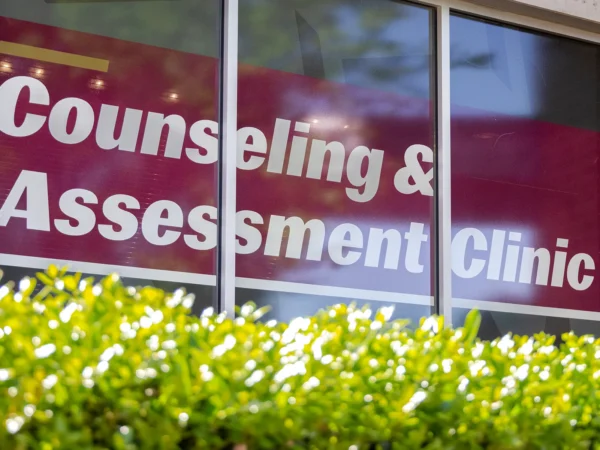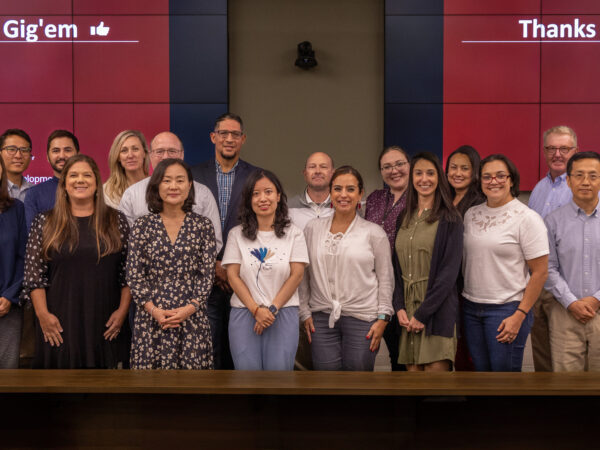Education Is Key In Ending Relationship Violence On Campuses
October is Domestic Violence Awareness Month. Domestic violence, or relationship violence, is an epidemic on college campuses.
“One in three women will be physically assaulted in a dating or domestic relationship and about 50 percent are psychologically abused in their lifetime by a dating partner,” said Dr. Sara Fehr, clinical assistant professor of health education.
These alarming statistics drive Fehr to campaign for awareness about relationship violence at Texas A&M and in the Bryan-College Station community.
THE KEYS TO AWARENESS
Health educators shift behaviors by implementing knowledge, attitudes and skills to raise awareness for relationship violence.
Providing knowledge of what relationship violence can look like helps people identify concerning signs, which can lead to victims getting help faster.
“The next thing we want to do is shift attitudes towards violence, in that it is not okay,” Fehr said. “It’s not something you should expect and it is not something that we should normalize.”
After people understand how relationship violence can manifest, Fehr said it is important to arm the public with skills that can save lives.
“A woman on average has to leave an abusive relationship about seven times before she can leave for good.”
Practicing skills like self-awareness and observation can help partners or bystanders identify concerning behaviors and know when to act.
RESOURCES FOR ALL
“If you have an inkling that domestic violence is occurring, how do you step in as a bystander to make sure that it does not escalate and somebody does not get hurt?”
Fehr is a Green Dot facilitator for Texas A&M’s Green Dot Bystander Intervention program. Green Dot is part of the two-pronged approach, Step In. Stand Up., to raise awareness for and create action against relationship violence.
“Green Dot is a great way to get involved on campus. Standing in as a bystander works great for on campus and working with students, but it also works in the Bryan-College Station community.”
Texas A&M’s Stand Up approach teaches mandated reporters how to have trauma-informed conversations. All Texas A&M faculty and staff are mandated reporters, meaning they have a legal obligation to tell authorities if they are informed of an assault.
“We have to make sure that these things are reported so we can connect our students, faculty and staff with resources. Their health and safety are our primary concern.”
Resources like Phoebe’s Home, a domestic violence shelter for women in BCS, are an effective outlet for women experiencing relationship violence. But what about other populations, like abused men?
“If we have a man who is being battered by a partner, he does not have access to something like Phoebe’s Home. We can still provide counseling and services, but it becomes a bit more challenging to find shelter.”
Fehr said anybody can be impacted by relationship violence. It does not discriminate by race, ethnicity, sexual orientation, socioeconomic status, religion or geographic location.
“When it comes to lesbian women, a lot of times people brush that off and say, ‘Can a girl hit another girl?’, but that stereotyping inherently goes into a lot of issues for people that identify as LGBTQ+.” Fehr said. “It is not that we see higher rates of battery among LGBTQ+, but unfortunately resources are not going to be as available to people in those communities.”
Fehr hopes by increasing attendance to workshops like Green Dot, more people in the community will rally for inclusive resources and reduce relationship violence.
Learn more about Dr. Sara Fehr.
To register for Green Dot bystander training visit tx.ag/bystandertraining
To request a Green Dot bystander training for your group visit tx.ag/bysttraininggroup
About the Writer
Heather is responsible for news coverage in the Department of Health and Kinesiology, as well as the Department of Educational Administration and Human Resource Development.
Articles by HeatherFor media inquiries, contact our Media Relations Coordinator, Ashley Green
Fundraising
To learn more about how you can assist in fundraising, contact Amy Hurley, Director of Development ahurley@txamfoundation.com or 979-847-9455














